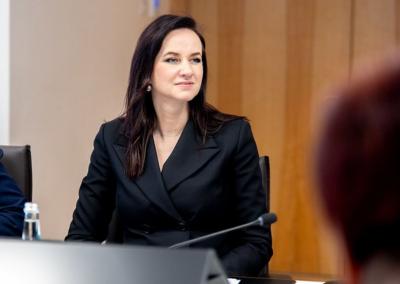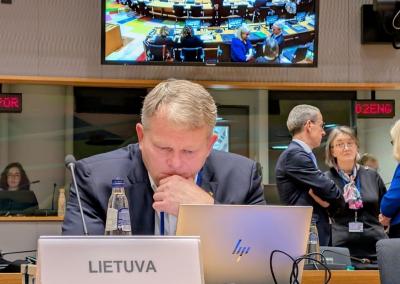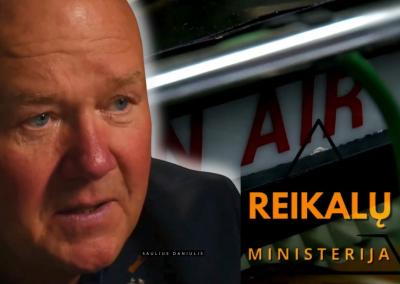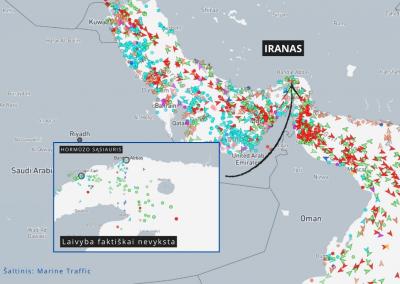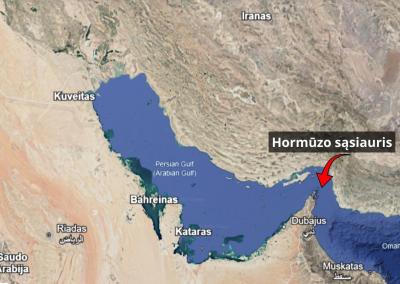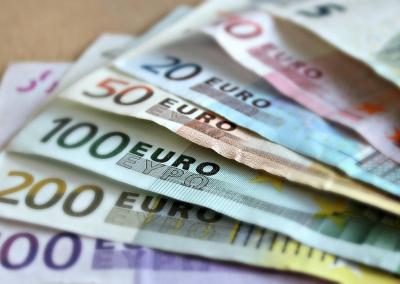A government that is putting a tax shackle on the population looks set to lose €2 billion of the RSFF
The tax reform adopted by the Seimas will complicate the Lithuanian government's negotiations with the European Commission (EC) on the millions of frozen Recovery and Resilience Facility (RRF) funds, says MEP Virginijus Sinkevičius. However, the politician believes that Lithuania is no longer in a position to receive the remaining €2 billion or so in the fund when it expires next year.
„I think that the negotiations will be very difficult – of course, it will all depend on the Commission's attitude, but, in fact, from what has been described and promised to the European Commission, (after the adoption of the tax reform – ELTA) the step is backwards, not forwards. And here the government may have a very difficult task ahead of it," Sinkevičius said on "ELTA Corner".
„Of course, there are a number of Member States that are struggling to use the RRF funds, and this might be an opportunity for the Commission to be more flexible, to try to look for some additional interpretations, – the fact is that we are not going to get all the (RRF – ELTA) funds anymore, “, – added the former European Commissioner.
The RRF part of the "New Generation Lithuania" (NGL) plan for Lithuania provides a total of €3.8 billion in funding, of which Vilnius has currently received only €1.8 billion – less than half of the total European support provided.
Lithuania has committed to the EC to meet three tax system change targets by 2026.
Although the exact amount of funds is still to be assessed by the Commission, Finance Minister Rimantas Šadžius has said that if Lithuania adopts the tax reform, which includes a real estate tax, it could recoup around €400 million of the frozen fund.
After several changes to the property tax proposals in the spring, the ruling coalition in the Seimas finally decided to tax the first home at €450,000 per person, and the combined value of the second and all other properties at €50,000 per person.
The negotiations are complicated by the fact that the RRF fund is made up of borrowed funds
Although the opposition and experts have criticised that this model of tax, which will come into force next year, will only reduce the budget revenue collection and the taxpayer base, Šadžius continued to maintain that even in this case Lithuania will recover the bulk of the €400 million in RRF funds.
Vaidas Augustinavičius, Senior Adviser to the President, also said that the significant fiscal impact of the tax reform adopted by the Seimas is a "very strong trump card" in Lithuania's negotiations with the EC.
Although the Cabinet of Ministers led by social democrat Gintautas Paluckas, unlike the government of conservative Ingrid Šimonytė, succeeded in adopting the tax reform, MEP Sinkevičius believes that the negotiations with the EC are being hampered by the long-stalled tax reform, but also by the other areas, such as education reforms.
„We will see, it all depends on the Commission's assessment. But here is the difference, what is often forgotten by those who are discussing – that this (RRF – ELTA) money does not exist, the Commission has to go to the markets, borrow, and then the Member State gets it. These are not budgetary funds that are already in the budget, that are just waiting to be disbursed, and if they are not disbursed, if they are not used, they are allocated somewhere else, the Member State is transferred to another programme or something like that," the politician explained.
Because the Community makes RRF payments to Member States on more favourable terms by borrowing on foreign markets, as the MEP pointed out, the negotiation of the „unfreezing“ of these funds is also more complicated.„This is where the Commission has that stricter approach, but as I said, the negotiations are certainly going to be difficult and proving that the change (in the RRF indicators – ELTA) is exactly what the previous government has foreseen, what it has negotiated with the Commission, and what it promised will be quite difficult, I think," Sinkevičius assured.
Lithuania received its last RDF payment from the EC in December last year – €463 million was paid out, less pre-financing.
Following changes in tax incentives, Lithuania was sanctioned by the EC last spring and withheld €8.7 million of the frozen €26 million RRF grant.
The Seimas adopted a tax reform package in its spring session, which, in addition to changes to the property tax, includes a more progressive taxation of personal income, an increase in the corporate income tax, and the introduction of new taxes on sugar and on insurance, the revenues of which will be allocated to defence.
The Finance Minister has said that the new tax package will add around €250 million to the country's budget next year and over €600 million in 2027.

















